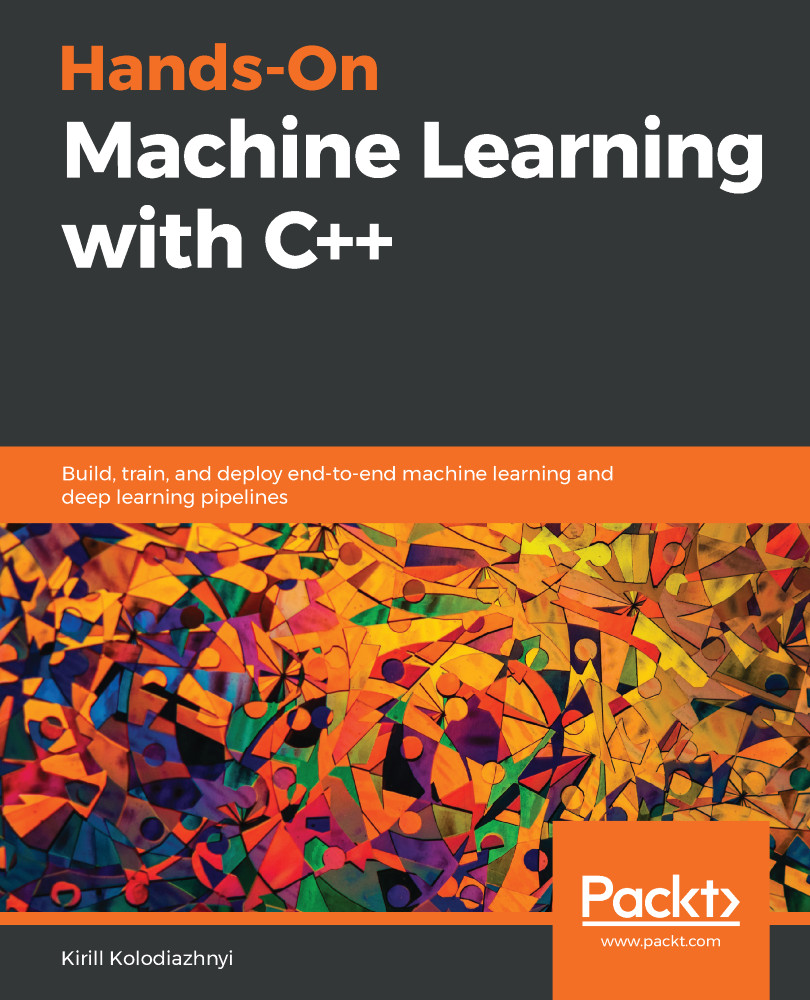In this chapter, we learned what ML is, how it differs from other computer algorithms, and how it became so popular. We also became familiar with the necessary mathematical background required to begin to work with ML algorithms. We looked at software libraries that provide APIs for linear algebra, and also implemented our first ML algorithm—linear regression.
There are other linear algebra libraries for C++. Moreover, the popular deep learning frameworks use their own implementations of linear algebra libraries. For example, the MXNet framework is based on the mshadow library, and the PyTorch framework is based on the ATen library. Some of these libraries can use GPU or special CPU instructions for speeding up calculations. Such features do not usually change the API but require some additional library initialization settings or explicit object conversion to different backends such as CPUs or GPUs.
In the next two chapters, we will learn more about available software tools that are necessary to implement more complicated algorithms, and we will also learn more theoretical background on how to manage ML algorithms.


